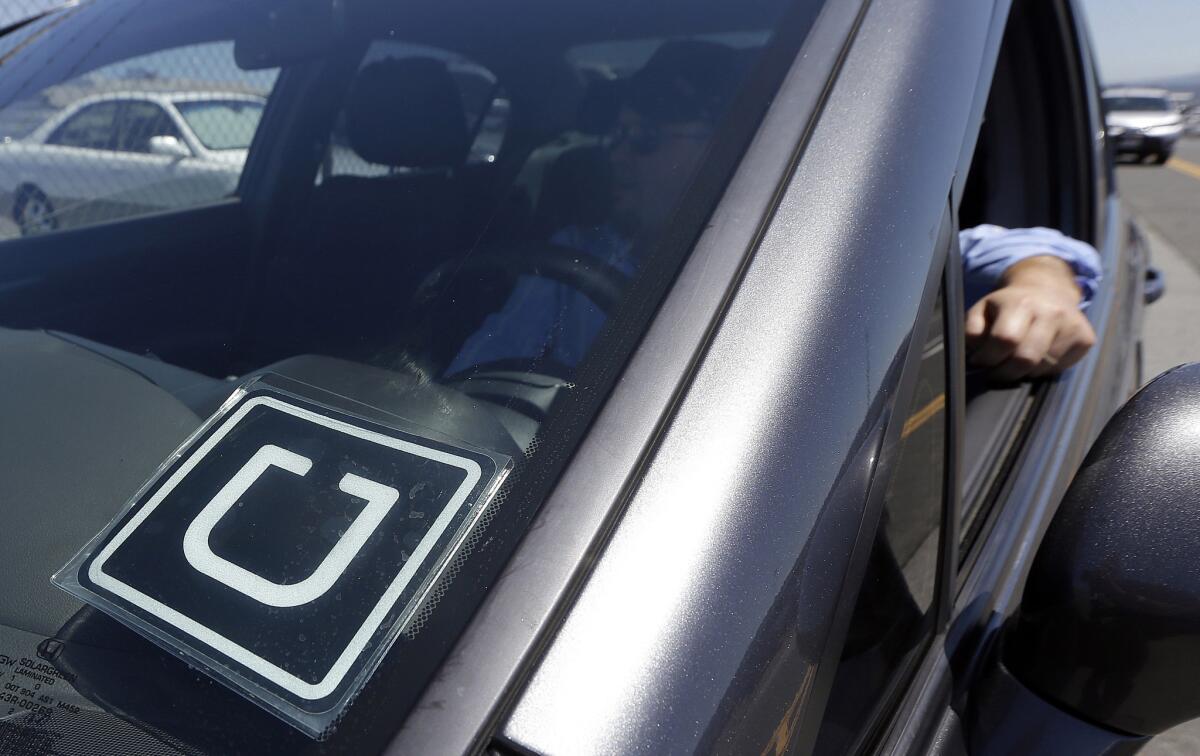Uber and Lyft have built loyal following, survey finds

- Share via
Americans who use ride-hailing apps believe the services are a positive force in the economy, and they should not be regulated like traditional taxis, according to a survey conducted by an independent research group.
The survey, released Wednesday by the Pew Research Center, suggests that companies operating in the sharing economy have created a loyal following among the relatively small slice of Americans who do business with them.
“They would prefer that as little regulation as possible take place. They are worried people will come along and perhaps make this thing they like a lot worse,” said Aaron Smith, the associate director of research at Pew who authored the report.
Just 15% of the 4,787 people surveyed by Pew had used a ride-hailing app, and 11% had used a home-sharing app, such as Airbnb. Educated, wealthy, young people who live in urban neighborhoods are particularly likely to use apps like Uber and Lyft, the survey found.
People who use car-sharing apps most frequently said they are closely following the national debate about how to regulate these companies. Both companies pulled out of Austin, Texas, this month after voters approved a rule that requires drivers of the apps to get fingerprinted in a background check.
Eighty percent of those polled by Pew who use the apps said that companies like Uber and Lyft “provide good jobs” for people who value flexibility, 57% of those who are familiar with the regulatory debate say the services should not have to submit to the rules that govern existing cab companies.
Using the Internet to buy things from regular people or hire them to provide basic services — as with Craigslist or TaskRabbit — has become mainstream, the survey showed. Pew found that 72% of Americans have used some form of “on demand” Internet business that allowed them to buy handmade or used products, get same-day delivery via a company such as Amazon, share rides or homes, or hire someone to perform an odd job.
But some corners of the sharing economy seem to be dominated by a niche class of young, rich, well-educated urbanites.
More than a quarter of those who live in households with a yearly income of at least $75,000 have hailed rides with an app, compared with 10% of people with a household income of less than $30,000.
“These are early adopters, and they look different from the people who might join these services in a year from now,” said Smith, the report’s author.
As Uber and Lyft reach more Americans who aren’t living in cities, or have high incomes or college degrees, Smith said, “the attitudes [of users] could look a lot different.”
Follow me @NatalieKitro on Twitter
More to Read
Inside the business of entertainment
The Wide Shot brings you news, analysis and insights on everything from streaming wars to production — and what it all means for the future.
You may occasionally receive promotional content from the Los Angeles Times.











